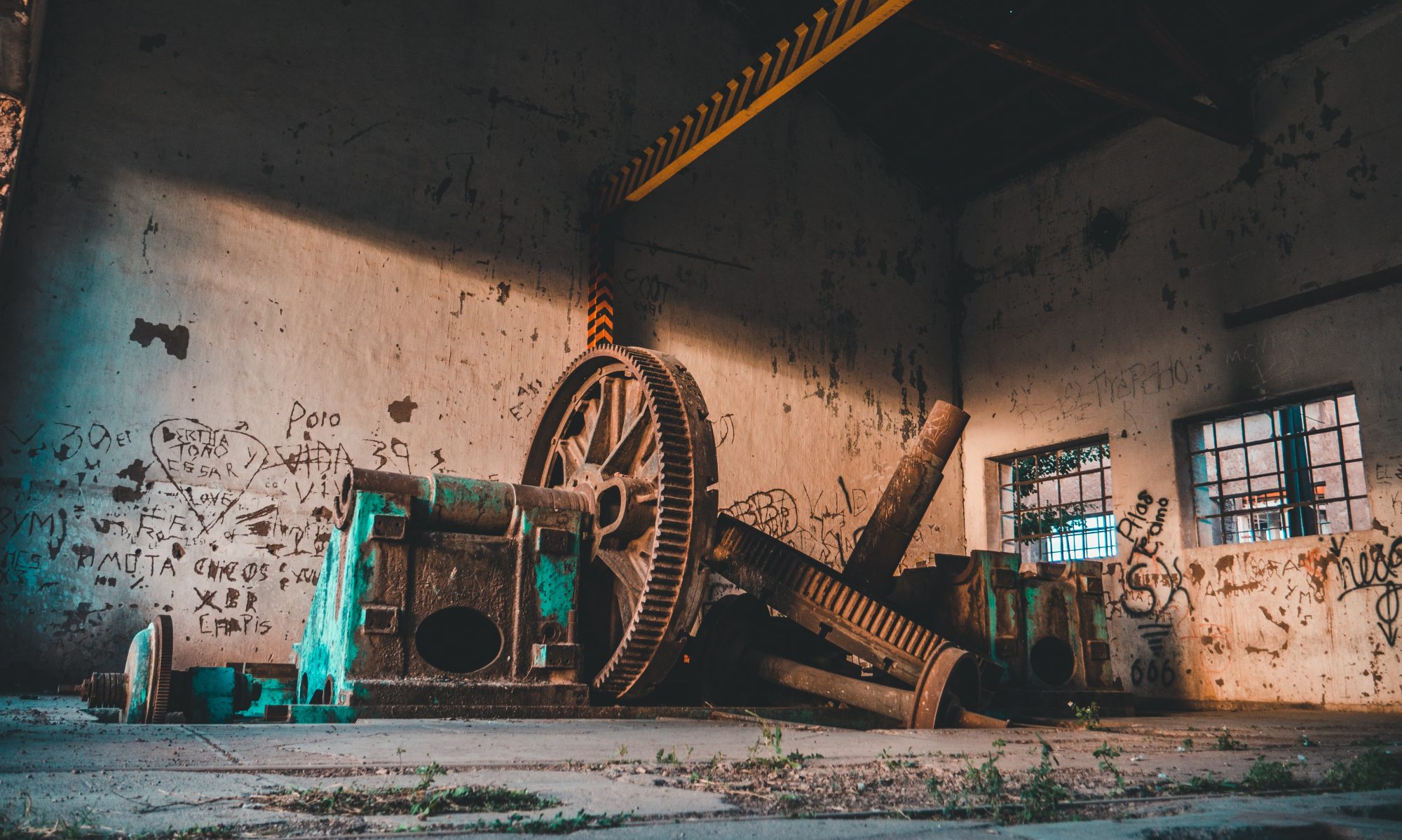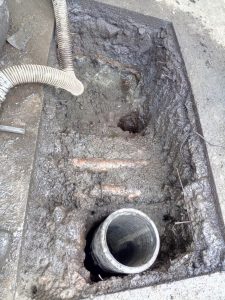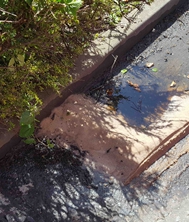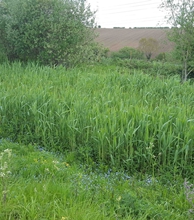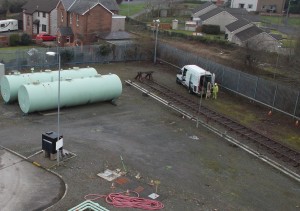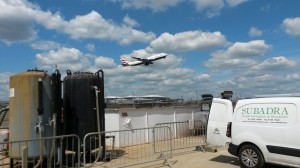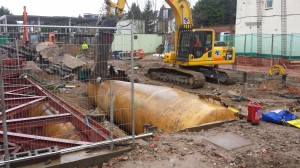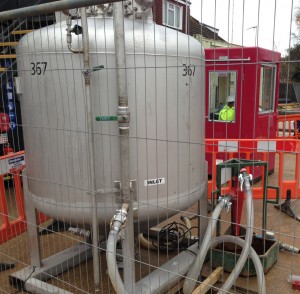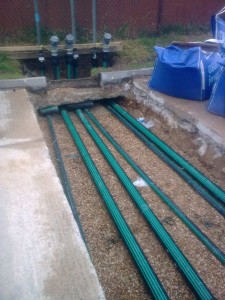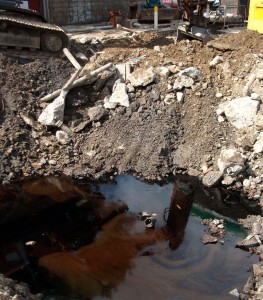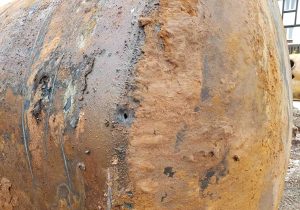
We’ve recently started the first phase of our latest remediation project: the redevelopment of a former petrol station site located in a highly environmentally sensitive location.
Stage one of our work comprised identifying and removing the source of the contamination. As you can see, we are pretty confident that we found the root-cause , although we have to wonder how the former site operator didn’t know something was wrong with this tank.
We’re currently working to design and integrate our groundwater treatment system with the construction work to ensure that there are no delays to the redevelopment.
